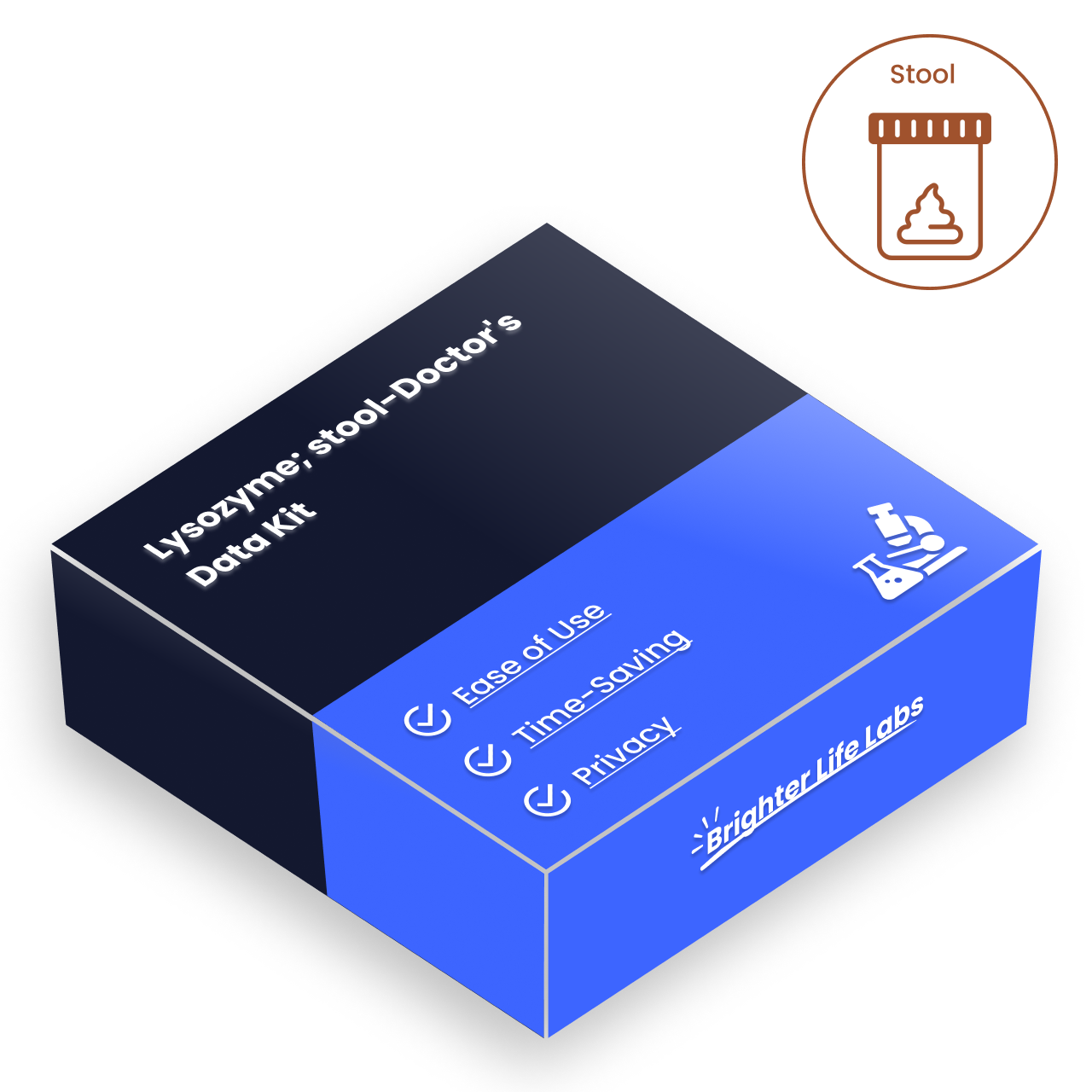1
/
of
1
Doctor's Data
Lysozyme; stool-Doctor's Data Kit
Lysozyme; stool-Doctor's Data Kit
Regular price
$199.00 USD
Regular price
Sale price
$199.00 USD
Unit price
/
per
Shipping calculated at checkout.
Couldn't load pickup availability
Note: This is a home collection test kit that will be mailed to you.
Fasting Required:
No
Lab:
Doctor's Data
Specimen:
Stool
Results:
Average processing time 7-10 business days
Note: Result turnaround times are an estimate and are not guaranteed. Our reference lab may need additional time due to weather, holidays, confirmation/repeat testing, or equipment maintenance.
Special Instructions:
If you are taking antifungal or antibiotic medications, please finish the course of medication, and then wait three days before starting this collection. Please refrain from taking digestive enzymes, antacids, and aspirin for two days prior to and during the specimen collection, unless otherwise instructed by your physician. Never discontinue prescription medications without first consulting your physician
Description:
Moderate elevations in fecal lysozyme are commonly associated with significant overgrowth of enteropathogens such as yeast or dysbiotic bacteria. Markedly elevated levels of fecal lysozyme have been identified in colonic inflammatory bowel disease (IBD), such as Crohn's disease and ulcerative colitis as well as other non-IBD G.I. diseases with diarrhea, compared to healthy controls. In Crohn's disease, excess lysozyme may be a result of active secretions of macrophages in the lamina propria, and monocytic cells in the granulomas (sites of G.I. inflammation). In ulcerative colitis, it has been postulated that elevations in fecal lysozyme may be secondary to intestinal loss of granulocytes and their secretory granules]. Additionally, Paneth cell metaplasia, a phenomenon that occurs with various inflammatory conditions of the large intestine, may be a minor contributor to fecal lysozyme elevations. Paneth cells are part of the intestinal epithelial lining found in the deepest part of intestinal crypt which are the crypts of Lieberkohn. Paneth cells contain lysozyme in their secretory granules, and combined with their phagocytic capability, help to regulate intestinal microbial flora. Lysozyme is helpful in the determination of colonic inflammatory activity rather than small bowel disease. Slightly elevated levels of lysozyme may be treated with anti-inflammatory agents or by removing the antagonist, such as enteroinvasive microorganisms or allergens. Moderate to high levels of lysozyme (>2,000) may indicate an active inflammatory bowel condition which often requires further testing such as colonoscopy. To rule out IBD, check fecal lactoferrin levels (elevated with IBD).
Share


